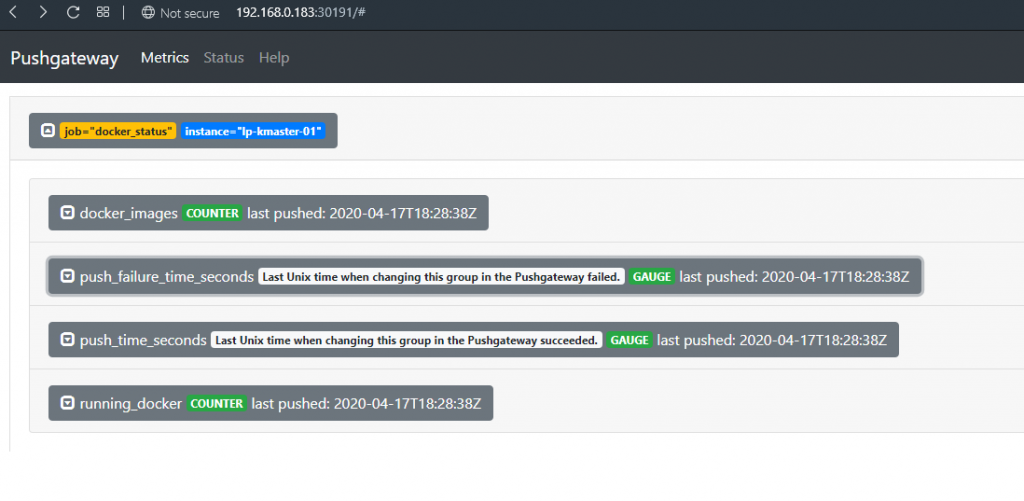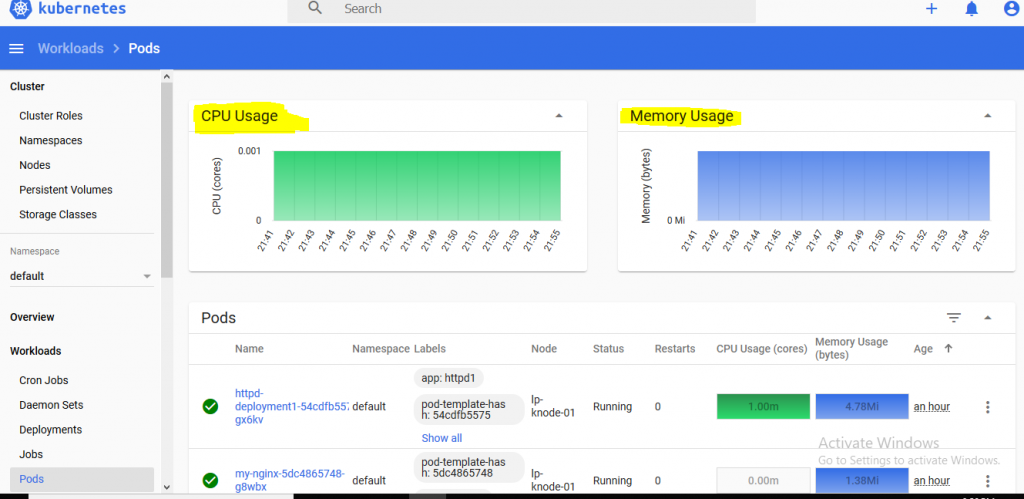1.Project > Configure > check github hook trigger and add repository URL

2.On Github Project > settings > Webhooks > Add webhook

1.Project > Configure > check github hook trigger and add repository URL

2.On Github Project > settings > Webhooks > Add webhook

1.Create serverless python3 deployment
faas-cli new --lang python3 python-fn --gateway http://192.168.0.183:31112 --prefix=192.168.0.183:30500/python-fn–prefix = Docker private repository
–gateway = Openfass gateway server
2.It will create the python-fn directory and python-fn.yml file
3.Write your python code inside python-fn/handler.py
def handle(req):
"""handle a request to the function
Args:
req (str): request body
"""
print("hola-openfaas")
return req
4.Build / Push / Deploy
faas-cli build -f python-fn.ymlfaas-cli push -f python-fn.ymlexport OPENFAAS_URL=http://192.168.0.183:31112
faas-cli login --password "YOUR_Openfaas_PASSWORD"faas-cli deploy -f python-fn.yml5. Remove
faas-cli remove -f python-fn.yml
rm -rf python-fn*Openfaas installation in k8
curl -sL https://cli.openfaas.com | sudo sh
git clone https://github.com/openfaas/faas-netes
kubectl apply -f https://raw.githubusercontent.com/openfaas/faas-netes/master/namespaces.yml
PASSWORD=$(head -c 12 /dev/urandom | shasum| cut -d' ' -f1)
kubectl -n openfaas create secret generic basic-auth \
--from-literal=basic-auth-user=admin \
--from-literal=basic-auth-password="$PASSWORD"
cd faas-netes
kubectl apply -f ./yaml
nohup kubectl port-forward svc/gateway -n openfaas 31112:8080 &
export OPENFAAS_URL=http://192.168.0.183:31112
echo -n "$PASSWORD" | faas-cli login --password-stdin
echo "$PASSWORD"Prometheus-k8.yml
apiVersion: apps/v1
kind: Deployment
metadata:
name: prometheus-deployment
labels:
app: prometheus
env: prod
spec:
replicas: 1
selector:
matchLabels:
app: prometheus
env: prod
template:
metadata:
labels:
app: prometheus
env: prod
spec:
containers:
- name: prometheus-container
image: prom/prometheus
imagePullPolicy: IfNotPresent
resources:
requests:
memory: "128Mi"
cpu: "200m"
limits:
memory: "256Mi"
cpu: "200m"
volumeMounts:
- name: config-volume
mountPath: /etc/prometheus/prometheus.yml
subPath: prometheus.yml
- name: prometheus-storage-volume
mountPath: /prometheus
ports:
- containerPort: 9090
volumes:
- name: config-volume
configMap:
name: prometheus-conf
- name: prometheus-storage-volume
nfs:
server: 192.168.0.184
path: "/opt/nfs1/prometheus"
---
kind: Service
apiVersion: v1
metadata:
name: prometheus-service
labels:
app: prometheus
env: prod
spec:
selector:
app: prometheus
env: prod
ports:
- name: promui
protocol: TCP
port: 9090
targetPort: 9090
nodePort: 30090
type: NodePortCreate prometheus.yml config-map file
kubectl create configmap game-config --from-file=/mnt/nfs1/prometheus/prometheus.ymlprometheus.yml
global:
scrape_interval: 30s
evaluation_interval: 30s
scrape_configs:
- job_name: 'lp-kmaster-01'
static_configs:
- targets: ['192.168.0.183:9100']Grafana-k8.yml
apiVersion: apps/v1
kind: Deployment
metadata:
name: grafana-deployment
labels:
app: grafana
env: prod
spec:
replicas: 1
selector:
matchLabels:
app: grafana
template:
metadata:
name: grafana-deployment
labels:
app: grafana
env: prod
spec:
containers:
- name: grafana
image: grafana/grafana:7.0.0
imagePullPolicy: IfNotPresent
resources:
requests:
memory: "128Mi"
cpu: "200m"
limits:
memory: "256Mi"
cpu: "200m"
ports:
- name: grafana
containerPort: 3000
volumeMounts:
- mountPath: /var/lib/grafana
name: grafana-storage
volumes:
- name: grafana-storage
nfs:
server: 192.168.0.184
path: "/opt/nfs1/grafana"
---
apiVersion: v1
kind: Service
metadata:
name: grafana-service
labels:
app: grafana
env: prod
spec:
selector:
app: grafana
type: NodePort
ports:
- port: 3000
targetPort: 3000
nodePort: 30091
1.Install docker
yum install docker
systemctl enable docker
systemctl start docker2. Run haproxy docker images with with persistent volume
mkdir /opt/haproxy
#and move the haproxy.cfg inside /opt/haproxy
docker run -d -p 8888:8888 -p 8404:8404 -v /opt/haproxy:/usr/local/etc/haproxy:Z haproxy3. haproxy.cfg
global
daemon
maxconn 256
defaults
timeout connect 10s
timeout client 30s
timeout server 30s
log global
mode http
option httplog
maxconn 3000
frontend stats
bind *:8404
stats enable
stats uri /stats
stats refresh 10s
frontend app1
bind *:80
default_backend app1_backend
backend app1_backend
server server1 192.168.0.151:8080 maxconn 32
server server1 192.168.0.152:8080 maxconn 32
server server1 192.168.0.153:8080 maxconn 32docker-compose file
version: '3'
services:
haproxy:
image: haproxy
ports:
- 80:80
- 8404:8404
volumes:
- /opt/haproxy:/usr/local/etc/haproxy1.Create NFS share
2. pi-hole-deployment.yml
---
apiVersion: apps/v1
kind: Deployment
metadata:
name: pi-hole-deployment
spec:
replicas: 1
selector:
matchLabels:
app: pi-hole
template:
metadata:
name: pi-hole-deployment
labels:
app: pi-hole
env: prod
spec:
containers:
- name: pi-hole
image: pihole/pihole
imagePullPolicy: IfNotPresent
resources:
requests:
memory: "256Mi"
cpu: "200m"
limits:
memory: "512Mi"
cpu: "200m"
volumeMounts:
- name: pihole-nfs
mountPath: /etc/pihole
- name: dnsmasq-nfs
mountPath: /etc/dnsmasq.d
ports:
- name: tcp-port
containerPort: 53
protocol: TCP
- name: udp-port
containerPort: 53
protocol: UDP
- name: http-port
containerPort: 80
- name: https-port
containerPort: 443
volumes:
- name: pihole-nfs
nfs:
server: 192.168.0.184
path: "/opt/nfs1/pihole/pihole"
- name: dnsmasq-nfs
nfs:
server: 192.168.0.184
path: "/opt/nfs1/pihole/dnsmasq.d"
---
apiVersion: v1
kind: Service
metadata:
name: pi-hole-service
labels:
app: pi-hole
env: prod
spec:
selector:
app: pi-hole
type: NodePort
externalIPs:
- 192.168.0.183
ports:
- name: dns-tcp
port: 53
targetPort: 53
nodePort: 30053
protocol: TCP
- name: dns-udp
port: 53
targetPort: 53
nodePort: 30053
protocol: UDP
- name: http
port: 800
targetPort: 80
nodePort: 30054
- name: https
port: 801
targetPort: 443
nodePort: 30055
Note: Use externalIPs in service so that the IP can be put inside wifi DNS.
apiVersion: apps/v1
kind: Deployment
metadata:
name: registry-deployment
labels:
app: registry
env: prod
spec:
replicas: 1
selector:
matchLabels:
app: registry
env: prod
template:
metadata:
labels:
app: registry
env: prod
spec:
containers:
- name: registry-container
image: registry:2
imagePullPolicy: IfNotPresent
env:
- name: REGISTRY_STORAGE_DELETE_ENABLED
value: "true"
resources:
requests:
memory: "256Mi"
cpu: "200m"
limits:
memory: "512Mi"
cpu: "200m"
volumeMounts:
- name: registry-data
mountPath: /var/lib/registry
- name: config-yml
mountPath: /etc/docker/registry/config.yml
subPath: config.yml
ports:
- containerPort: 5000
volumes:
- name: registry-data
nfs:
server: 192.168.0.184
path: "/opt/nfs1/registry"
- name: config-yml
configMap:
name: registry-conf
---
kind: ConfigMap
apiVersion: v1
metadata:
name: registry-conf
data:
config.yml: |+
version: 0.1
log:
fields:
service: registry
storage:
filesystem:
rootdirectory: /var/lib/registry
http:
addr: :5000
headers:
X-Content-Type-Options: [nosniff]
health:
storagedriver:
enabled: true
interval: 10s
threshold: 3
---
kind: Service
apiVersion: v1
metadata:
name: registry-service
labels:
app: registry
env: prod
spec:
selector:
app: registry
env: prod
ports:
- name: registry
protocol: TCP
port: 5000
targetPort: 5000
nodePort: 30500
type: NodePort2.As this is running on http we need to add insecure registry inside /etc/docker/daemon.json on all running worker node and
{
"insecure-registries" : [ "192.168.0.183:30500" ]
}3. Restart the docker service
systemctl restart docker4. Tag the image that with registry server ip and port. DNS name can be used if available.
docker tag debian:latest 192.168.0.183:30500/debianlocal:latest5. Push the images to private registry server
docker push 192.168.0.183:30500/debianlocal:latest6. Delete images form registry server we will use docker_reg_tool https://github.com/byrnedo/docker-reg-tool/blob/master/docker_reg_tool
Note:
– Delete blobdescriptor: inmemory part from /etc/docker/registry/config.yml which is already have done in this example
– REGISTRY_STORAGE_DELETE_ENABLED = “true” should be present in env
./docker_reg_tool http://192.168.0.183:30500 delete debianlocal latest
#This can be cronjob inside the container
docker exec -it name_of_registory_container bin/registry garbage-collect /etc/docker/registry/config.yml
1.Deploy pushgateway to kubernetes
pushgateway.yml
apiVersion: apps/v1
kind: Deployment
metadata:
name: pushgateway-deployment
labels:
app: pushgateway
env: prod
spec:
replicas: 1
selector:
matchLabels:
app: pushgateway
env: prod
template:
metadata:
labels:
app: pushgateway
env: prod
spec:
containers:
- name: pushgateway-container
image: prom/pushgateway
imagePullPolicy: IfNotPresent
resources:
requests:
memory: "128Mi"
cpu: "200m"
limits:
memory: "256Mi"
cpu: "200m"
ports:
- containerPort: 9091
---
kind: Service
apiVersion: v1
metadata:
name: pushgateway-service
labels:
app: pushgateway
env: prod
spec:
selector:
app: pushgateway
env: prod
ports:
- name: pushgateway
protocol: TCP
port: 9091
targetPort: 9091
nodePort: 30191
type: NodePort2. Add pushgateway in /etc/prometheus/prometheus.yml

3. Push running docker status to pushgateway using below bash script and add it to crontab
job="docker_status"
running_docker=$(docker ps | wc -l)
docker_images=$(docker images | wc -l)
cat <<EOF | curl --data-binary @- http://192.168.0.183:30191/metrics/job/$job/instance/$(hostname)
# TYPE running_docker counter
running_docker $running_docker
docker_images $docker_images
EOF4. Data visualization in prometheus and pushgateway server


Python code:
job_name='cpuload'
instance_name='web1'
payload_key='cpu'
payload_value='10'
#print("{k} {v} \n".format(k=payload_key, v=payload_value))
#print('http://192.168.0.183:30191/metrics/job/{j}/instance/{i}'.format(j=job_name, i=instance_name))
response = requests.post('http://192.168.0.183:30191/metrics/job/{j}/instance/{i}'.format(j=job_name, i=instance_name), data="{k} {v}\n".format(k=payload_key, v=payload_value))
#print(response.text)pushgateway powershell command:
Invoke-WebRequest "http://192.168.0.183:30191/metrics/job/jenkins/instance/instace_name -Body "process 1`n" -Method Post$process1 = (tasklist /v | Select-String -AllMatches 'Jenkins' | findstr 'java' | %{ $_.Split('')[0]; }) | Out-String
if($process1 -like "java.exe*"){
write-host("This is if statement")
Invoke-WebRequest "http://192.168.0.183:30191/metrics/job/jenkins/instance/instace_name" -Body "jenkins_process 1`n" -Method Post
}else {
write-host("This is else statement")
Invoke-WebRequest "http://192.168.0.183:30191/metrics/job/jenkins/instance/instace_name" -Body "jenkins_process 0`n" -Method Post
}1. Get the metrics server code form github
git clone https://github.com/kubernetes-sigs/metrics-server
cd metrics-server
#Edit metrics-server-deployment.yaml
vi deploy/kubernetes/metrics-server-deployment.yaml
#And add below args
args:
- --kubelet-preferred-address-types=InternalIP,Hostname,InternalDNS,ExternalDNS,ExternalIP
- --kubelet-insecure-tlsmetrics-server-deployment.yaml will look like below

2. After deployment we will get the cpu and ram usage of node as below


3.Now we can write Horizontal Pod Autoscaler as below that will auto scale nginx-app1 deplyment if cpu usage will get above 80% max 5 pods.
– It’s checks every 30 seconds for scaling the deployment
– It’s scale downs the deployment after 300 seconds if the load goes down
kind: HorizontalPodAutoscaler
apiVersion: autoscaling/v1
metadata:
name: nginx-app1-hpa
spec:
scaleTargetRef:
kind: Deployment
name: nginx-app1
apiVersion: apps/v1
minReplicas: 1
maxReplicas: 5
targetCPUUtilizationPercentage: 804. nginx-app1.yml
apiVersion: apps/v1
kind: Deployment
metadata:
name: nginx-app1
spec:
selector:
matchLabels:
run: nginx-app1
replicas: 2
template:
metadata:
labels:
run: nginx-app1
spec:
containers:
- name: nginx-app1
image: nginx
resources:
requests:
memory: "128Mi"
cpu: "100m"
limits:
memory: "256Mi"
cpu: "200m"
ports:
- containerPort: 80
---
kind: Service
apiVersion: v1
metadata:
name: nginx-app1-svc
labels:
run: nginx-app1-svc
spec:
ports:
- protocol: TCP
port: 80
targetPort: 80
nodePort: 30083
selector:
run: nginx-app1
type: NodePort5. Random load generator
while(true)
do
curl -s http://SERVICE_NAME
curl -s http://SERVICE_NAME
curl -s http://SERVICE_NAME
curl -s http://SERVICE_NAME
curl -s http://SERVICE_NAME
donenginx-kibana-deplyment.yml
apiVersion: apps/v1
kind: Deployment
metadata:
name: nginx-kibana-deployment
labels:
app: nginx-kibana
env: prod
spec:
replicas: 1
selector:
matchLabels:
app: nginx-kibana
env: prod
template:
metadata:
labels:
app: nginx-kibana
env: prod
spec:
containers:
- name: nginx-container
image: nginx
imagePullPolicy: IfNotPresent
resources:
requests:
memory: "128Mi"
cpu: "200m"
limits:
memory: "256Mi"
cpu: "200m"
volumeMounts:
- name: nginx-conf
mountPath: /etc/nginx/nginx.conf
subPath: nginx.conf
- name: nginx-admin-htpasswd
mountPath: /etc/nginx/admin-htpasswd
subPath: admin-htpasswd
ports:
- containerPort: 80
volumes:
- name: nginx-conf
configMap:
name: nginx-conf
- name: nginx-admin-htpasswd
configMap:
name: nginx-admin-htpasswd
---
kind: Service
apiVersion: v1
metadata:
name: nginx-kibana-service
labels:
app: nginx-kibana
env: prod
spec:
selector:
app: nginx-kibana
env: prod
ports:
- name: kibana-ui
protocol: TCP
port: 80
targetPort: 80
nodePort: 30081
type: NodePortnginx.conf
events { }
http
{
upstream kibana
{
server 192.168.0.183:30063;
server 192.168.0.184:30063;
server 192.168.0.185:30063;
}
server
{
listen 80;
location / {
auth_basic "kibana admin";
auth_basic_user_file /etc/nginx/admin-htpasswd;
proxy_pass http://kibana;
}
}
}Create admin-htpasswd auth file with htpasswd for admin user.
yum install httpd-tools
htpasswd -c admin-htpasswd admin
-Create config maps in kubernetes for above files
( nginx.conf, admin-htpasswd )
kubectl create configmap nginx-conf --from-file nginx.conf
kubectl create configmap nginx-admin-htpasswd --from-file admin-htpasswdyum install epel-release
yum install nginx
systemctl start nginx
systemctl enable nginxvi /etc/nginx/nginx.conf
events { }
http {
upstream api {
#least_conn; #other options are also available
server 192.168.0.57:6443;
server 192.168.0.93:6443 weight=3;
server 192.168.0.121:6443 max_fails=3 fail_timeout=30;
}
server {
listen 8888 ssl;
ssl_certificate test.crt;
ssl_certificate_key test.key;
location / {
proxy_pass https://api;
}
server {
listen 80 default;
location / {
proxy_pass https://api;
}
}
}
Loadbalancing algorithm:
least_conn
ip_hash
weight=5
max_fails and fail_timeoutMore on : http://nginx.org/en/docs/http/load_balancing.html#nginx_load_balancing_health_checks